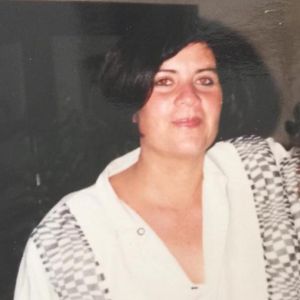My name is Vivian Schnitzer, I am Chilean. I lived in Austria, in Vienna, for many years. I left Chile in 1983 and returned for the plebiscite as a journalist to cover the event. The memories I have of that day are much more personal than professional. Memory is made up of sensations, right? Images. Sounds that are unforgettable. On the night of the plebiscite, while waiting for the results, I went with other colleagues to Alameda Street, where Plaza Italia begins. Plaza Italia is the square that all Chileans remember from my childhood, where couples used to stroll, where street vendors were, where the city of Santiago was divided between the affluent neighborhood and downtown. It was Plaza Italia, where real life in Santiago began, where demonstrations took place, where people were beaten, where water cannons were used against students. It was where real life unfolded. Before, I used to live in the affluent neighborhood, and I returned for the plebiscite with a different political education than the one I had when I left Chile, which was very limited. Being educated in the affluent neighborhood during Pinochet’s time was, to say the least, practically impossible for young people.
Well, that night it was so impressive to see how contagious the feeling of joy is when freedom and dignity are regained. There were so many people in the streets, young people, people of all ages, and we were protected and cared for by the Carabineros, the police. It was impressive because the crowd was singing, jumping, crying with joy as the results of the plebiscite were being announced. It was amazing to see how contagious that joy was, and even the police officers were happy, moved. And the most beautiful thing was standing on Alameda Street, thinking about Allende’s final words when he said, “And one day the great avenues will open up for free men to pass.” And there we were, me reporting and so many people, so many people who had been in Chile, who had suffered, who had been oppressed, who felt they could say, “Long live freedom! Long live democracy! We will be who we were, we will remove the mask of fear, terror, and oppression. And we will become people again. We will be what we were.” At the same time, it was very impressive to see how absolute power was crumbling before my own eyes. When absolute power is in full swing, it seems like it will never end. It seems impossible to defeat. And what I remember are the giant screens displaying the results and showing the faces of the generals and their wives, and how they cried, how their makeup ran down their faces. And that, for me, was such a strong symbol of how absolute power crumbles before my own eyes. Seeing the vulnerability of the oppressive system as they crumbled with the joy of the people, with the people’s vote, with the will of the people reclaiming their dignity, it was a contrast. It was, as they say, a very moving double screen, very touching.
I don’t know, it was a night that changed my vision of Chile forever, and I would say that more than in a political sense, it affected me personally. It was a night of shining eyes, eyes filled with love. It was as if we had regained the capacity for humanity in just a couple of hours, with the results of the plebiscite. The numbers, the numbers speak, the numbers say it all. It was a night of hope, where I realized that absolute power is cyclical and can end, and that freedom can begin. And that the values of democracy and human dignity are much stronger than oppression and the humiliation that people were subjected to. And that’s why they always come back. There is always the possibility of the best of civil society returning. And that night was a return of the best of civil society.
And to see it in young people who had not experienced democracy, we’re talking about the military coup in 1973. There were young people there on the streets, on Alameda, who had never experienced what democracy was, and yet there they were, understanding even without having had any political education. All they knew was oppression. That’s what they were familiar with. And there they were, immediately recognizing what democracy meant, what the right to freedom of expression meant, what the right to assembly meant. And everyone was singing, and everyone had shining eyes. We were reclaiming the Chile we had lost many years ago.
For me, the night of the plebiscite was a night that I would like to pass on to my children and grandchildren. So that they never lose hope, if they ever live in a system where absolute power oppresses them, that it is natural for us as human beings to return to democracy, to return to hope, and to regain our dignity. And that night was a recovery of dignity, of freedom. And of hope for a better future.


